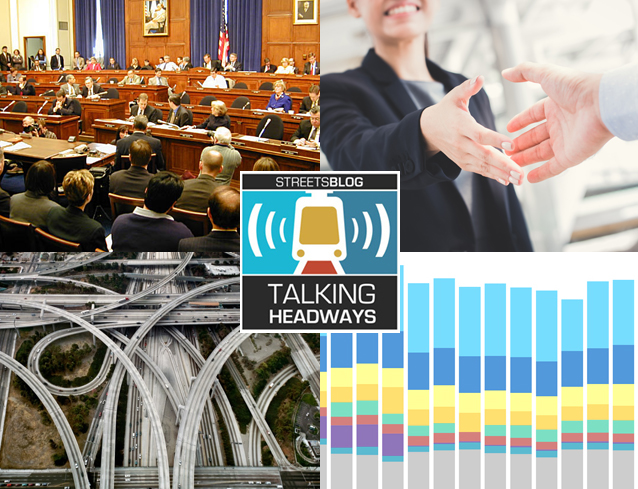This week we’re joined by Dr. Nadia Anderson, former director of federal affairs at INRIX to talk about what lobbyists actually do, the one-year anniversary of the Biden infrastructure law, and whether Justice 40 will improve equity.
If you prefer to read, there's an edited transcript below. If you want the full unedited transcript (and don't mind typos), click here.
Jeff Wood: So what’s your job entail as the Director of Federal Affairs? Like what is your kind of day-to-day, I guess, lobbyist action?
Nadia Anderson: So it’s really fun and exciting working in the data space because there’s so much that you can do not only from a practitioner’s point of view, but also when it comes to putting together the next generation of public policy. So playing with the numbers in a way to figure out what’s happening, what’s being said, but then also asking some really interesting questions about what we don’t know and then what data sets are out there that could help either put a finer point on it or give those people who are working on the ground the tools that they need to be able to solve it.
When it comes to actually advocating, it’s a lot of conversations of educating folks on what data can be used to do and the various sets of data that are out there, but also thinking about what’s missing when it comes to like data insights and analytics and doing a little bit of innovative thinking about trying to solve future problems but also figuring out if there are things that we may think are fact that, for lack of a better word, should be interrogated or revisited based on what it is that we know today.
Jeff Wood: I think a lot of people think of lobbyists in terms of like cigars and backrooms and and those types of things. What does that like visual mean to you versus what you just told us?
Nadia Anderson: I think it’s funny. So I had a very similar thought of what a lobbyist was based on movies like "Thank You for Smoking" and then also looking at "The West Wing" and "House of Cards" and all the things that we see on TV. I will say in a comparison to that in real life, it’s a lot of people who are really thoughtful sitting around the table and having conversations with the goal of figuring out what could should be done and then also figuring out what has been done in the past and what impacts have happened and then figuring out what is the spirit of what everybody’s trying to do and what needs to be changed.
There is a level of healthy debate that happens in most circles when it comes to the advocacy community. But I think the misnomer is that lobbying and engaging in government affairs is a bad thing. I think it’s something that is a part of like democracy and it can be used as a tool to help make sure that we are all progressing towards the future society that we want to see.
And I think it’s good to have different people with different ideas around the table sort of hashing things out and working on, you know, very pressing and important issues.






